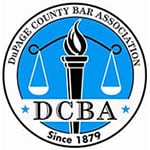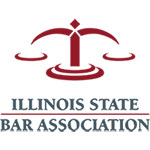Illinois Breath Alcohol Ignition Interlock Device (BAIID) Laws
Beginning in 2009, any driver facing a Statutory Summary Suspension of his license who wishes to obtain relief during that suspension must obtain a BAIID device. BAIID stands for Breath Alcohol Ignition Interlock Device, and is essentially an instrument installed on the dashboard of the driver’s vehicle that is meant to prevent the operation of a vehicle by a driver who has consumed alcohol. The permit that allows this relief is called an MDDP – a Monitoring Device Driving Permit. Unlike the old JDP which is now replaced, the MDDP allows a driver to drive any place at any time, so long as they are complying with the BAIID.
The BAIID works by requiring the driver to blow in the instrument before the vehicle will start, and at random intervals during the operation of the vehicle – once in the first 15 minutes and twice an hour thereafter. It is also designed to prevent artificial devices from being used to register acceptable air results – and while no contraption is completely foolproof, the penalty for trying to cheat the machine can be serious and is undoubtedly unwise.
Our Practice Areas
Getting arrested for suspicion of DUI/DWI, domestic violence, drug violations or any other criminal charge can be terrifying. Without the right criminal defense attorney in your corner, your liberty is at stake. Your job, your reputation and your family relationships are also at risk. Our experienced attorneys understand that the charges you face do not define who you are. We are here to protect your rights and provide the legal guidance you need.
The BAIID records results in its internal memory, and the memory is required to be reported to the Secretary of State at regular intervals. Any BAC result in the BAIID that is above .025 could result in ramifications that range from an inability to start the vehicle to a locking of the ignition for up to 24 hours. The machine is also costly – not only are operators required to pay fees for the installation and rental of the device, but also a fee to the Secretary of State for monitoring the device.
An additional change in 2009 is the lengthening of the Statutory Summary Suspension period to 6 months for defendants who have failed breath tests and 12 months for those who refuse breath tests. BAIIDs are only available to first offenders under the Summary Suspension laws, which are basically defendants who have not had any DUIs or other alcohol-related suspensions over the prior five years. You must also meet some minimum requirements in order to be eligible for a BAIID (have an otherwise valid license, have no prior Reckless Homicides or Aggravated DUIs causing death, be above the age of 18).
There is a limited exception to the MDDP permit for drivers of company-owned vehicles, only within the scope of employment and not take-home vehicles.
Some things did not change with the advent of the BAIIDs. Most notably, a defendant is still entitled to a timely hearing as to the validity of his license suspension. Most often, this hearing is available on or near the first court date of a defendant facing a DUI, which is the single most important reason for you to hire
a skilled attorney shortly after being
arrested for a DUI. Also unchanged is the initial 30-day hard suspension that drivers face when after a DUI – your BAIID is not valid during that time period. The suspension continues to begin 46 days after the sworn report by the arresting officer.
The consequences of a BAIDD violation can be dire – a 90-day extension of the suspension period or in the case of repeated violations, the impoundment or even forfeiture of the vehicle. It is also important to note that somebody who has an MDDP but is driving a vehicle without a BAIID is guilty of a Class 4 Felony. Soliciting another person to blow into the device is a Class A misdemeanor. Finally, if one is convicted of DUI, the MDDP is then canceled upon the revocation of the driver’s license.
In sum, it is crucial to have an attorney well-versed in the court processes and procedures for MDDP issuance. If you have any further questions, we encourage you to
contact us at our law offices.






